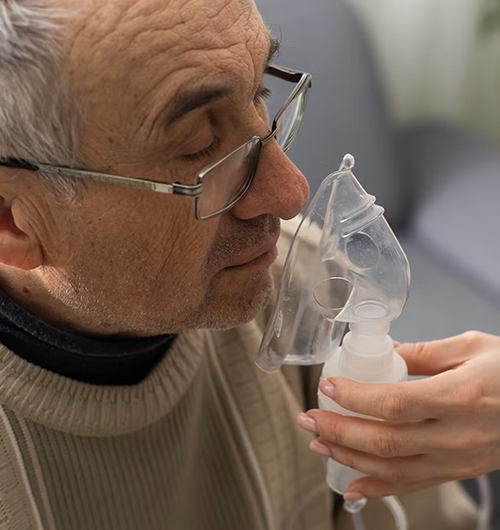Pulmonology genetic testing is a specialized diagnostic tool used to identify inherited genetic mutations that affect lung health and respiratory function. It helps detect conditions such as cystic fibrosis, primary ciliary dyskinesia, alpha-1 antitrypsin deficiency, and surfactant dysfunction disorders. This type of testing analyzes DNA from a blood or saliva sample to pinpoint specific gene alterations that may cause or contribute to chronic or progressive pulmonary diseases. Early identification through genetic testing enables more accurate diagnosis, personalized treatment plans, and informed family planning decisions. It is especially useful for patients with unexplained respiratory symptoms or a family history of lung disease.
Choosing pulmonology genetic testing offers a proactive approach to understanding and managing inherited lung conditions. It enables early and accurate diagnosis, especially in cases where symptoms are nonspecific or overlap with other respiratory disorders. By identifying the exact genetic cause, clinicians can tailor treatment plans, monitor disease progression more effectively, and avoid unnecessary interventions. Additionally, it provides critical insights for family members who may be at risk, supporting informed decisions about genetic counseling and preventive care. For children and adults with recurrent or unexplained respiratory issues, this testing serves as a key tool for unlocking answers and improving long-term health outcomes.





Individuals with a personal or family history of chronic or unexplained respiratory issues should consider pulmonology genetic testing. It is especially relevant for those who exhibit early-onset or treatment-resistant lung symptoms, as well as families affected by known genetic pulmonary disorders. This testing can help clarify diagnoses, guide targeted treatments, and inform relatives of potential risks or carrier status.
You should consider this test if:

A pulmonologist or genetic specialist reviews the patient’s medical history, symptoms, and family background to determine the need for testing.
The patient (or guardian) is informed about the purpose, benefits, risks, and limitations of the genetic test, followed by signing a consent form.
A DNA sample is collected, usually through a blood draw, saliva, or buccal (cheek) swab.
The sample is sent to a certified laboratory where technicians use methods like next-generation sequencing (NGS) to analyze genes associated with pulmonary conditions.
A geneticist or physician interprets the findings, identifying mutations or variants relevant to lung function or disease.
Results are discussed with the patient in a follow-up session, including diagnosis confirmation, treatment recommendations, and guidance for family members.

 01
01
Our fully integrated E-Lab platform offers online test ordering, real-time tracking, and secure digital reporting bringing convenience and control to both physicians and patients across the country.
 02
02
From routine blood tests to complex genetic panels, we leverage cutting-edge platforms like NGS, PCR, and AI-powered analytics for maximum accuracy and clinical relevance.
 03
03
With lab facilities based in Florida, we ensure faster processing times and direct access to our expert team. You get timely results backed by responsive, local customer support.
At E-lab, we are dedicated to innovation, collaboration, and seamless growth.
